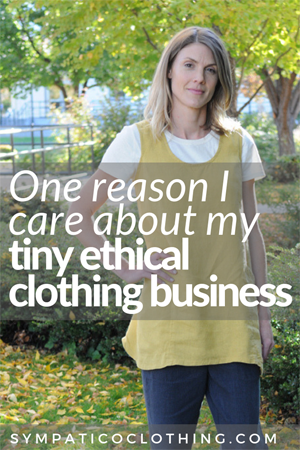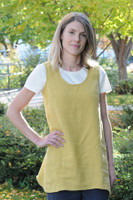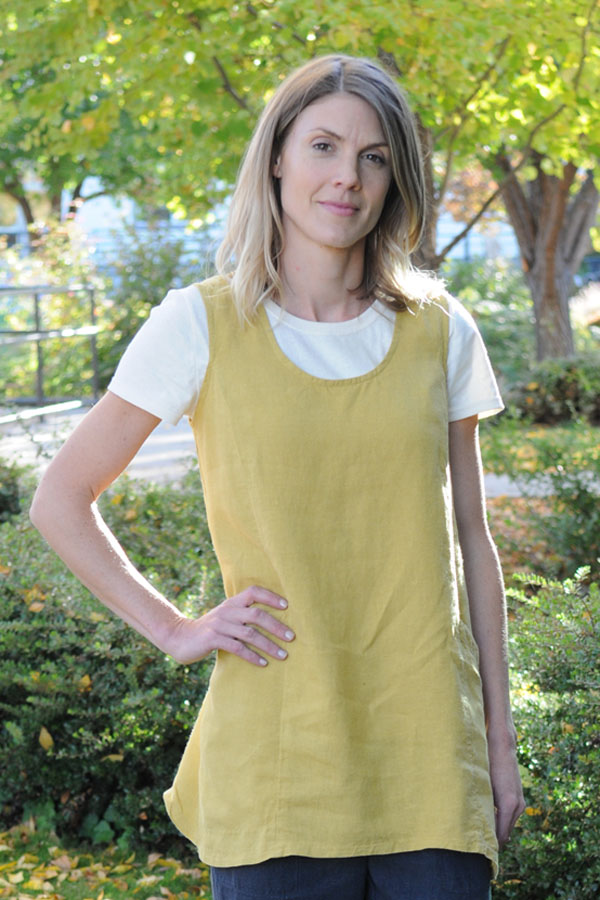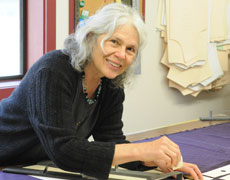The upsides of running a tiny ethical-clothing company (and the challenges)
Posted by Rose on 31st Mar 2022
Ethical clothing makers may seem anachronistic, but there’s still a place for well-constructed and designed artisanal apparel.
In a world where market share is the holy grail, running a tiny ethical clothing company can sometimes feel quixotic. The economies of scale and efficiencies that accompany a business growing bigger are a focus of most business plans. That’s especially true for goods such as apparel that the global market sees as a commodity. In fast fashion, the race to the bottom price-wise is key. Getting there is all about scaling up in order to get to the lowest possible retail price, regardless of the human and environmental costs.
The Trapeze Tunic in Turmeric layers nicely over Graphite Stovepipe Pants.
Also in that race to achieve the lowest possible price point on the retail rack, shortcuts and cheap materials are the key. The fast-fashion industry knows that its output isn’t designed to be durable. It just needs to be superficially fashionable and current. Considerations such as environmental and human impacts are given little thought.
Only second to the petrochemical industry, the global clothes manufacturing market is a leading polluter of the world’s soils and water supplies. We've all seen the horrific photos and films of rivers awash in dyes and other pollutants. In the developing world where there is little regulation, clothes account for some of the most potent pollution sources. The human toll is equally profound. Workers are often paid wages that don’t support basic needs. They’re also exposed to dangerous working conditions and in some cases housed like animals in jam packed dormitories in which workers on two shifts share the same bed.
Some business professionals I’ve talked to see Sympatico as anachronistic and at odds with this kind of marketplace. And they’re right—strictly by the numbers, an ethical clothing business like Sympatico makes no sense. As a micro-size entrepreneur, I continually juggle scale with the needs of my customers. As my slow season approaches, I have to make decisions about how much inventory I’m willing to have “winter over.”
One response to that dilemma is to keep dyed fabric on hand so I can cut and sew items as customers need them. That’s one of the benefits of staying small — I can be responsive to my customers on a very personal level, even if I can’t offer the vast inventories of fast fashion.
Another challenge is the lack of clout a microscale entrepreneur like Sympatico can wield to get answers from their suppliers about the sustainability and origins of the materials they purchase. As I explain in this post, I try to cultivate strong relationships with my suppliers so as to help ensure that the materials I use are ethically sourced.
But without a marketplace that values artisanal work, Sympatico wouldn’t exist. And for that, I have you, my customers, to thank! I've blogged about the complicated choices we all make as consumers here.

Share:






